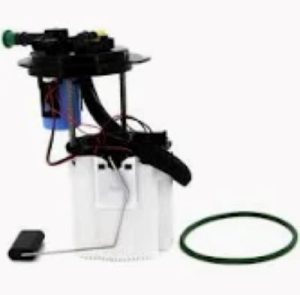Proper installation of quality components that are designed to be low vibration can do much towards taming the fuel pump noise monster. Improper mounting is one of the most common causes of fuel pump noise. RUBBER ISOLATORS OR CUSHIONED CLAMPS MUST BE USED FOR MOUNTING IN-LINE FUEL PUMPS I. E. ALONG FRAME. These pieces soak up the vibrations that would have otherwise flowed into the body of car, drastically diminishing noise by 50%. Eliminating these mountings and rubber isolators allows the 70-dBA-level whir of pump operating noise to resonate straight through to the cabin.
And less fuel in the tank means more slosh, and hence, more noise. Submerged in-tank fuel pumps utilize the gasoline around it for noise suppression and cooling purposes. The lower the fuel drops below a quarter tank, the pump operates louder because it no longer has the liquid buffer which normally quiets down noise to as much as 30%. I also read that keeping the tank least half full helps with pump longevity, as it prevents the pump from overheating (which can also make some noise).
Clogged or restricted fuel filters can also force the pump to labor harder Shortening its life and making it noiser. Fortunately, replacing the fuel filter every 30K to 50K miles will ensure that the pump can continue to operate at its proper flow rate and pressure, usually ranging from between 40psi and 70psi for normal vehicles. When using a setup of high performance especially that is capable of exceeding 90 psi, it becomes vital to the reduction in noise to use a filter rated for high flow. The pump can be working very hard trying to force fuel through a clogged filter, with noise levels going up 20% or more.

One common question that gets asked is “why has my fuel pump been getting louder and louder over time?“. Where to look first would be normal wear & tear, or there is not enough voltage going to the pump. Incorrect output voltage, typically below 12.5 volts, makes the pump have difficulty to work well and noise (because it tries to compensate). It is important to make sure that the pump has a constant source of voltage from the electrical system of your vehicle to run quietly. It will help eliminate the pump hum, just test for voltage drops with a multimeter and fix any wiring provided this is done correctly
When you choose to mount aftermarket fuel pumps, specific high-performance Kemso electrical pump options cover quieter targeted parts. A performance pump does the same job but is manufactured with high pressures and flow rates that won't create noise under load, meaning it's perfect for modified vehicles committed to both performance and comfort.
For additional info on fuel pump noise reduction and choosing quieter fuel systems, check out Fuel Pump where Kemso carries a full line of performance-based, quiet-running fuel pumps.